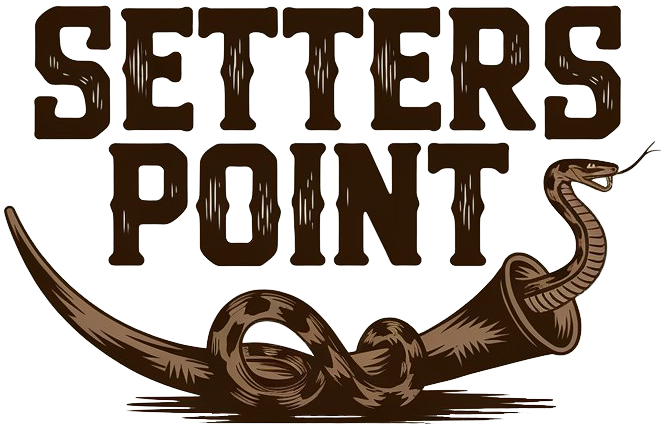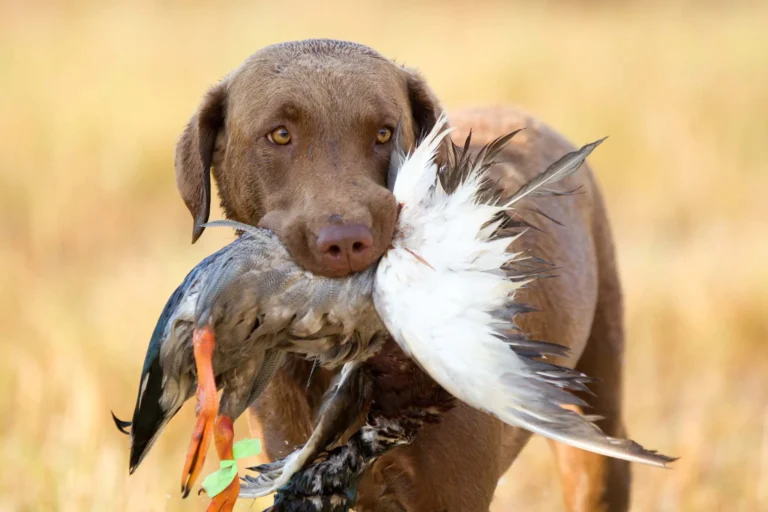Duck hunting is more than just a pastime for many—it is a tradition that connects people to the outdoors and tests their skills in unique ways. One of the most rewarding parts of duck hunting is sharing the experience with a four-legged companion who not only brings enthusiasm to the hunt but also gets the job done.
The best duck hunting dogs are more than just pets; they are hardworking partners who retrieve downed birds, brave cold waters, and follow commands with remarkable precision.
Choosing the right dog for the job can feel overwhelming, especially with so many breeds known for their hunting prowess. Whether you are a seasoned hunter or just starting, finding a breed that fits your hunting style, terrain, and personal preferences can make all the difference.
From retrievers with boundless energy to spaniels that excel in tight spaces, each breed brings something unique to the table.
Some breeds are even used for bear hunting.
This guide explores the top duck hunting breeds, highlighting their strengths, temperament, and what makes them perfect for waterfowl hunting. Whether you hunt from a boat, a blind, or trek through marshes, there is a dog breed that matches your needs. Let’s take a closer look at these incredible canine companions and what makes them the ultimate partners for every hunter.
Labrador Retriever
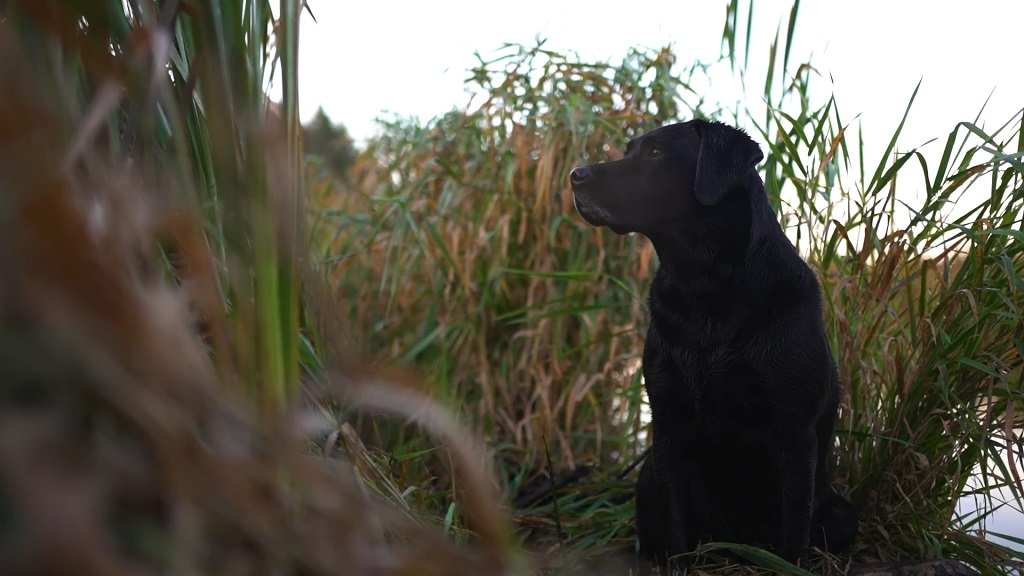
The Labrador Retriever is one of the most popular and versatile hunting breeds in the world. These dogs are celebrated for their intelligence, athleticism, and natural retrieving instincts. Labs thrive in cold, wet environments and are perfect for duck hunters who need a reliable partner.
Key Traits of Labrador Retrievers
- Water-resistant coat: Their short, dense coat repels water, keeping them warm even in icy conditions.
- Strong swimming abilities: Labs are built for water retrieval with webbed feet and powerful legs.
- High energy and stamina: They can handle long hunting days without tiring.
- Gentle “soft mouth”: They retrieve the game without causing damage.
If you own a female, be sure to choose the right name for it.
Additional Considerations
- Trainability: Labs are eager to please and respond well to positive reinforcement training.
- Family-friendly temperament: They make excellent companions at home when not hunting.
- Dietary needs: Their active lifestyle requires a nutrient-rich diet to sustain energy.
- Cold weather resilience: They excel in colder climates but may need extra care in extreme heat.
Chesapeake Bay Retriever
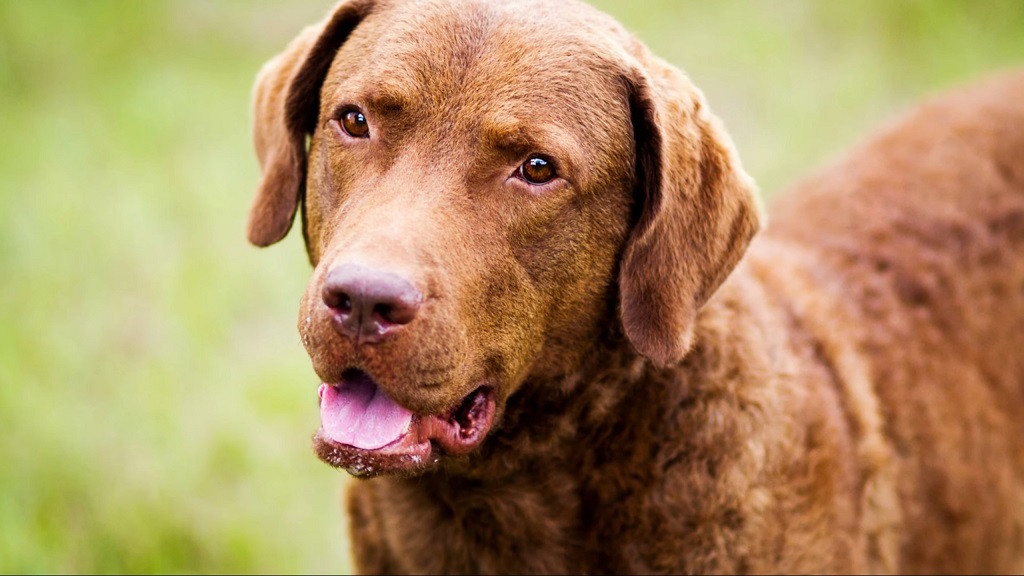
Chesapeake Bay Retrievers, often called Chessies, are known for their ruggedness and determination. Bred to work in harsh, icy waters, these dogs are a powerhouse when it comes to retrieving waterfowl in challenging conditions.
Key Traits of Chesapeake Bay Retrievers
- Thick, oily coat: Provides insulation and protection in freezing waters.
- Robust build: They are muscular and sturdy, capable of handling rough terrain.
- Strong work ethic: Chessies are highly driven and won’t back down from a tough task.
- Loyal nature: They bond closely with their owners and are fiercely protective.
Additional Considerations
- Independent streak: While intelligent, Chessies can be more stubborn than other retrievers, requiring firm and consistent training.
- Socialization needs: Early exposure to other dogs and people helps prevent overprotectiveness.
- High energy levels: They need plenty of physical activity beyond hunting.
- Weather versatility: Their coat adapts well to cold and wet environments but requires regular maintenance to prevent matting.
Golden Retriever
Golden Retrievers are renowned for their intelligence, versatility, and gentle nature. While often seen as family pets, they are exceptional hunting companions with a natural affinity for retrieving waterfowl.
Key Traits of Golden Retrievers
- Dense, water-repellent coat: Protects them in wet and cold conditions.
- Muscular and agile build: Enables them to handle various terrains.
- Intelligence: They are quick learners, making training easier.
- Soft mouth: Ensures game is retrieved without damage.
Additional Considerations
- Friendly demeanor: Goldens are naturally sociable and make great dual-purpose dogs for home and hunting.
- Adaptability: They perform well in diverse hunting environments, from marshes to open fields.
- Grooming needs: Their longer coat requires regular brushing to prevent tangling and shedding.
- Steady temperament: Goldens remain calm and focused during hunts, making them reliable partners.
Nova Scotia Duck Tolling Retriever
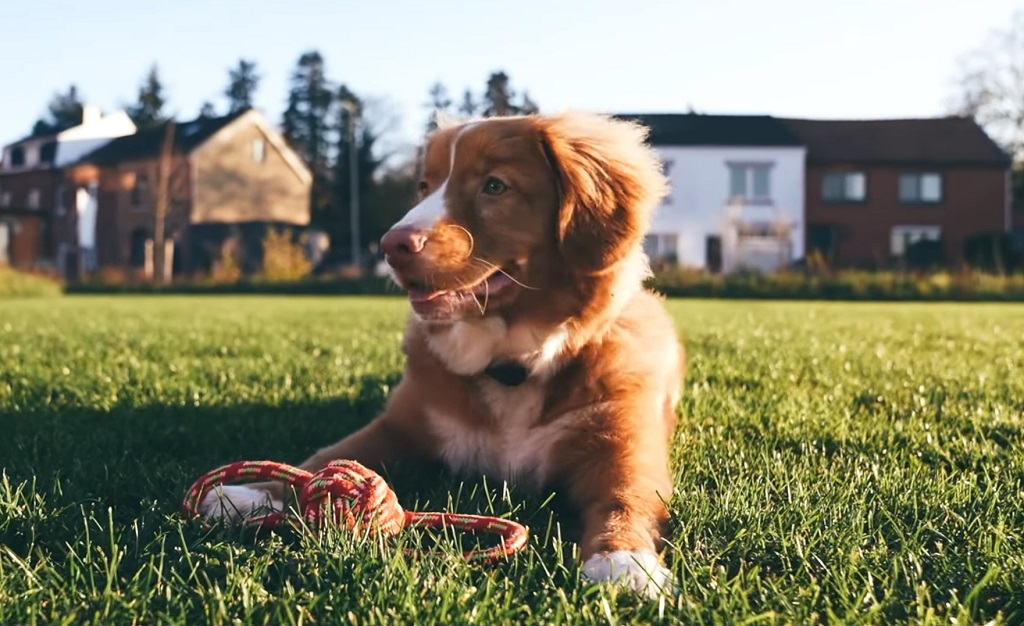
The Nova Scotia Duck Tolling Retriever, or Toller, is a smaller retriever breed with a unique role in waterfowl hunting. Known for their fox-like appearance, these dogs “toll” ducks by luring them closer with their playful behavior, making them easier targets for hunters.
Key Traits of Nova Scotia Duck Tolling Retrievers
- Unique tolling ability: Their movements attract ducks out of hiding.
- Compact and agile: Their smaller size makes them ideal for hunting from boats or small blinds.
- Water-resistant double coat: Keeps them warm and dry in cold, wet conditions.
- Highly intelligent: Tollers are quick learners and respond well to commands.
Additional Considerations
- Energy level: Tollers are high-energy dogs and require plenty of exercise beyond hunting.
- Social demeanor: They are friendly but may be reserved with strangers.
- Training focus: Their intelligence makes training easy, but they need consistent mental stimulation to avoid boredom.
- Maintenance needs: Regular brushing is necessary to keep their coat in good condition.
Boykin Spaniel
The Boykin Spaniel is an American original, bred in South Carolina for waterfowl hunting in swamps and marshes. Their compact size and enthusiastic demeanor make them excellent companions for hunters navigating tight spaces or using smaller boats.
Key Traits of Boykin Spaniels
- Compact build: Their smaller size is perfect for maneuvering in confined areas.
- Versatile abilities: They excel in flushing and retrieving game.
- Water-resistant coat: Keeps them comfortable in wet environments.
- High energy and enthusiasm: Boykins are eager workers who enjoy being part of the hunt.
Additional Considerations
- Adaptability: They are equally adept at waterfowl and upland bird hunting.
- Gentle disposition: Boykins are great family pets when not working in the field.
- Training needs: They are highly trainable but need early socialization to channel their energy effectively.
- Grooming requirements: Their coat needs regular care to prevent matting, especially after wet hunts.
Irish Water Spaniel
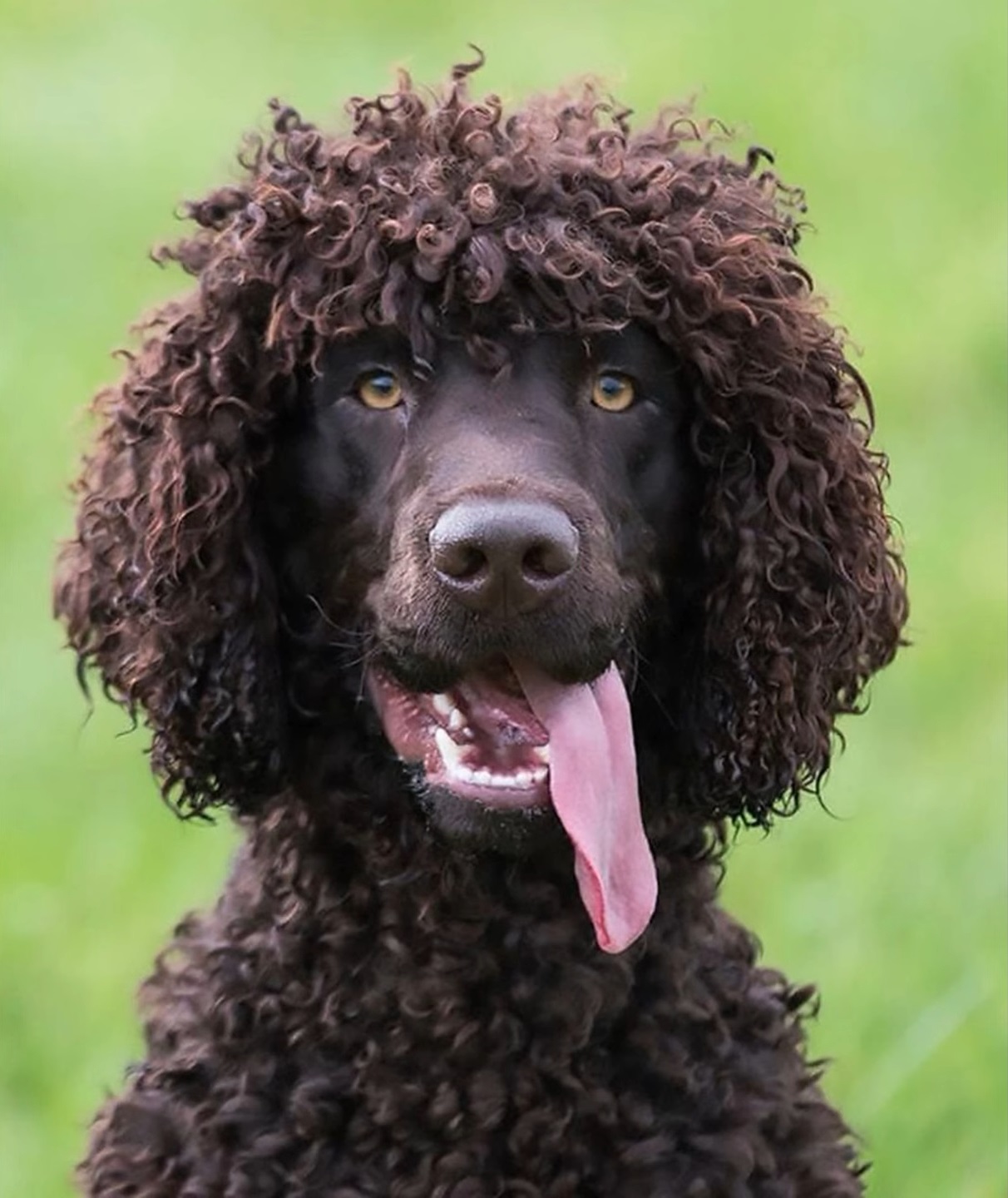
The Irish Water Spaniel stands out with its distinctive curly coat and is known for its exceptional skills in retrieving waterfowl from challenging environments. This breed is the tallest of the spaniel group and has a natural affinity for water.
Key Traits of Irish Water Spaniels
- Curly, waterproof coat: Protects them in wet and cold conditions.
- Tall and athletic: Their build allows them to cover ground efficiently.
- Strong swimming ability: These dogs are natural in water retrieval.
- Intelligent and focused: They excel in tasks requiring precision and persistence.
Additional Considerations
- Training focus: Irish Water Spaniels are smart but require consistent training to harness their hunting instincts.
- Temperament: While friendly, they can be independent, so patience is essential during training.
- Coat maintenance: Regular grooming is necessary to keep their unique coat clean and tangle-free.
- Exercise needs: They are active dogs that thrive with plenty of physical and mental challenges.
English Springer Spaniel
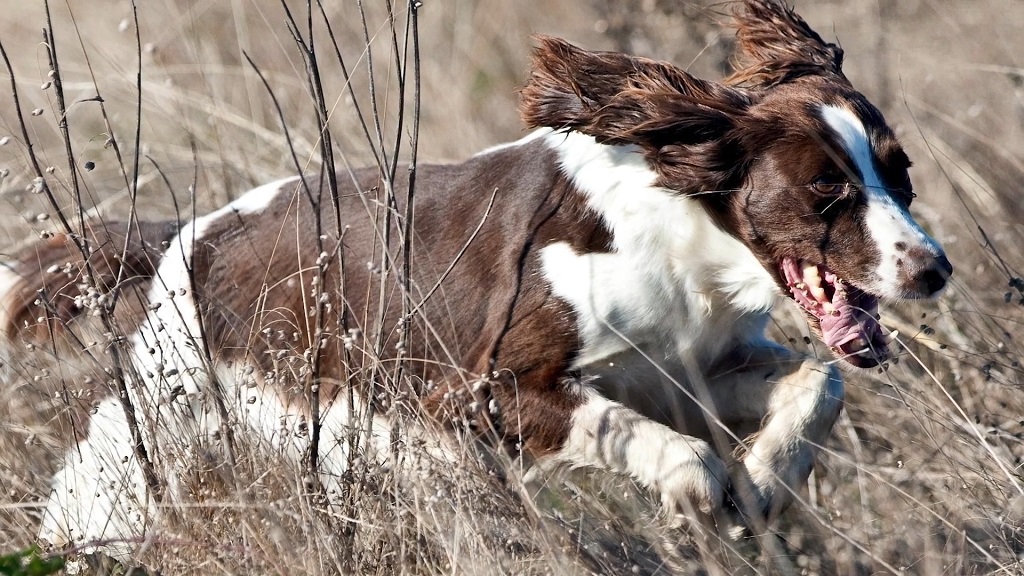
The English Springer Spaniel is a versatile and energetic breed, originally developed for flushing upland game birds. While primarily used in upland hunting, they adapt well to waterfowl hunting, making them a reliable choice for hunters who need a dog with enthusiasm and stamina.
Key Traits of English Springer Spaniels
- Medium-sized build: Compact yet sturdy, making them agile in various terrains.
- Flushing ability: Exceptional at driving birds out of hiding.
- High energy: They can sustain long hunting sessions without tiring.
- Friendly and eager-to-please temperament: Makes them easy to train and enjoyable companions.
Additional Considerations
- Adaptability: They can transition between upland and waterfowl hunting with ease.
- Social nature: Springers are excellent family pets when not in the field.
- Training requirements: They thrive with consistent and positive reinforcement methods.
- Grooming needs: Their medium-length coat requires regular brushing, especially after hunting in wet or wooded areas.
German Shorthaired Pointer
The German Shorthaired Pointer is a true multi-purpose hunting breed, excelling in both upland and waterfowl hunting. Known for their stamina and versatility, these dogs are ideal for hunters who value a dog that can perform in diverse environments.
Key Traits of German Shorthaired Pointers
- Athletic build: Their lean and muscular frame gives them speed and endurance.
- Versatile hunting skills: They excel in pointing, flushing, and retrieving.
- Short, water-resistant coat: Protects them in wet conditions while requiring minimal grooming.
- Intelligent and trainable: They quickly learn and respond to commands.
Additional Considerations
- Energy level: These dogs are high-energy and need plenty of exercise to stay happy and focused.
- Temperament: Friendly and eager to work, but they can be strong-willed, requiring firm leadership.
- Cold weather limitations: Their short coat makes them less suited to extremely cold conditions without additional protection.
- Socialization needs: Early exposure to different environments and people ensures they remain well-rounded.
Curly-Coated Retriever
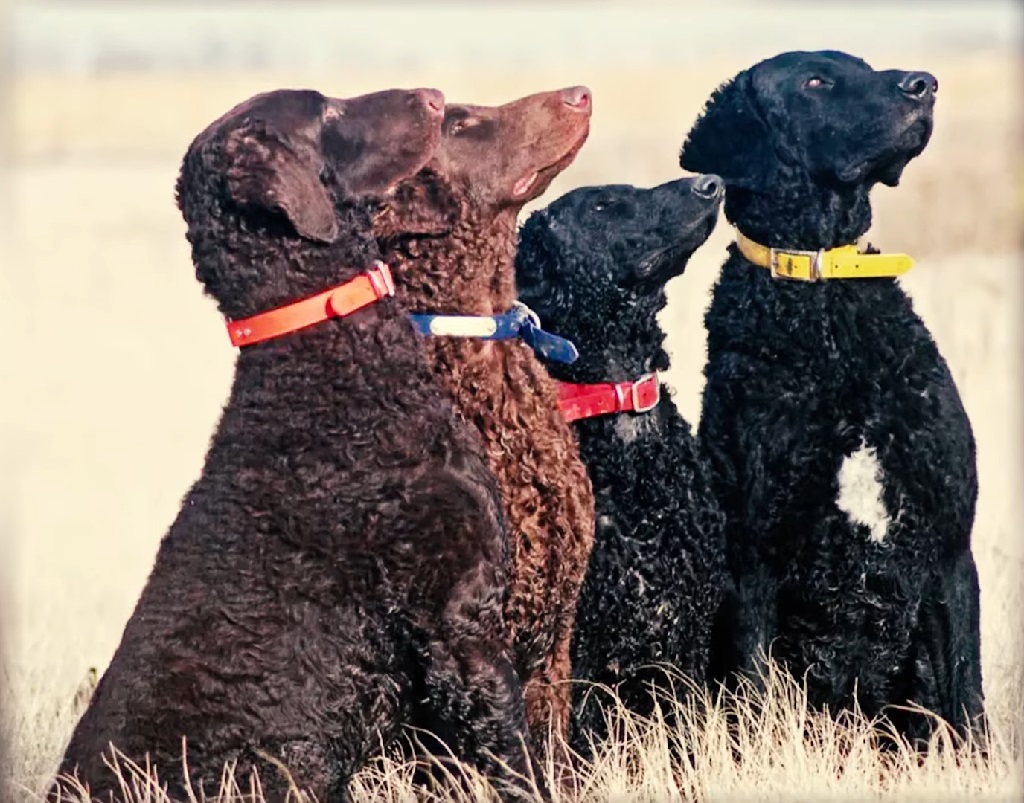
The Curly-Coated Retriever is one of the oldest retriever breeds, distinguished by its unique curly coat. This breed is known for its resilience, intelligence, and exceptional retrieving ability, especially in challenging waterfowl hunting environments.
Key Traits of Curly-Coated Retrievers
- Curly, water-resistant coat: Protects them from cold water and harsh weather.
- Large and strong build: Enables them to handle rough terrain and long hunts.
- Independent nature: They can work efficiently with minimal direction.
- Natural retrieving instinct: They excel in bringing back downed birds without damaging the game.
Additional Considerations
- Temperament: While affectionate, they are less clingy than some other retriever breeds, making them better suited for experienced handlers.
- Training needs: They require patient, consistent training to overcome their independent streak.
- Coat maintenance: Despite its unique appearance, their coat is low-maintenance, requiring only occasional grooming.
- Health considerations: Like many large breeds, they may be prone to hip dysplasia and other joint issues, so regular check-ups are essential.
Deutsch Drahthaar (German Wirehaired Pointer)
The Deutsch Drahthaar is a highly versatile hunting breed, excelling in both waterfowl and upland game pursuits. Known for its rugged build and weather-resistant coat, this breed thrives in challenging environments, making it an excellent choice for hunters who need a reliable and adaptable partner.
Key Traits of Deutsch Drahthaars
- Weather-resistant coat: Their wiry coat provides protection in harsh conditions, including cold and wet environments.
- Versatility: Skilled in pointing, flushing, and retrieving game.
- Strong swimming ability: Ideal for waterfowl hunting.
- Intelligence and focus: They excel in both independent tasks and working closely with their handler.
Additional Considerations
- Training needs: Early and consistent training is essential to channel their drive and energy.
- Energy level: These dogs need regular exercise and mental stimulation beyond hunting.
- Social temperament: With proper socialization, they are loyal and affectionate companions.
- Coat care: Minimal grooming is required, but occasional brushing helps keep their coat in good shape.
Italian Spinone
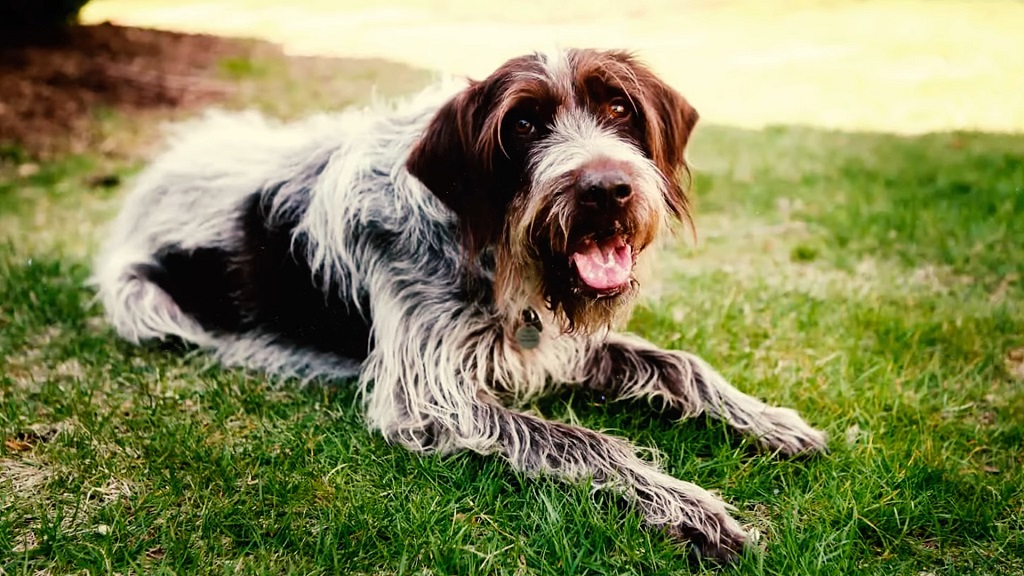
The Italian Spinone is a patient and robust hunting dog, known for its calm demeanor and excellent tracking and retrieving skills. This breed is particularly well-suited to hunters who prefer a steady and reliable partner in the field.
Key Traits of Italian Spinones
- Dense, water-repellent coat: Protects them in wet conditions and varied terrains.
- Strong build: Their muscular frame supports stamina for long hunting sessions.
- Calm and patient temperament: Ideal for hunters seeking a steady companion.
- Natural retrieving instincts: They excel at finding and bringing back game.
Additional Considerations
- Adaptability: Spinones are comfortable in both waterfowl and upland hunting scenarios.
- Grooming needs: Regular brushing keeps their coat in good condition, especially after wet hunts.
- Training approach: They respond well to gentle, consistent training methods.
- Companionship: Their easy-going nature makes them excellent family dogs when not in the field.
American Water Spaniel
The American Water Spaniel is a versatile hunting dog that combines the traits of a retriever and a spaniel. Bred in the United States for hunting in marshes and rivers, this breed is known for its energy, enthusiasm, and adaptability.
Key Traits of American Water Spaniels
- Compact size: Their smaller build makes them suitable for tight spaces and small boats.
- Water-resistant, curly coat: Keeps them comfortable in wet and cold conditions.
- Versatility: Skilled in flushing and retrieving waterfowl and upland game.
- High energy and enthusiasm: They bring relentless energy to every hunt.
Additional Considerations
- Training needs: Early, consistent training ensures they channel their energy productively.
- Socialization: They thrive with positive reinforcement and exposure to various environments.
- Exercise requirements: Regular physical activity is essential to keep them healthy and happy.
- Home life: They are affectionate companions and adapt well to family settings.
FAQs
What Are the Benefits of Using a Dog for Duck Hunting?
Using a dog for duck hunting enhances efficiency by retrieving downed birds quickly, reducing waste, and ensuring ethical hunting practices. Dogs also help locate waterfowl in challenging terrains, saving hunters time and effort.
How Do You Train a Dog for Duck Hunting?
Training involves starting with basic obedience commands like sit, stay, and come. Gradual exposure to water, decoys, and gunfire builds their confidence. Advanced techniques include teaching blind retrieves, whistle commands, and handling multiple retrieves.
Can Any Dog Be Trained for Duck Hunting?
Not all dogs are suited for duck hunting. Breeds with natural retrieving instincts, water-resistant coats, and high stamina are better equipped for the demands of waterfowl hunting. While any dog with the right traits can be trained, specialized hunting breeds excel.
What Gear Do Duck Hunting Dogs Need?
Essential gear includes a well-fitted neoprene vest for insulation, a sturdy collar with ID tags or GPS tracking, and a portable dog blind for concealment. First aid kits and paw protection are also helpful for keeping dogs safe in the field.
How Can I Keep My Duck Hunting Dog Healthy During Hunting Season?
Provide a nutrient-rich diet with high protein and fat to fuel their active lifestyle. Ensure hydration during hunts and inspect their coat, ears, and paws for injuries or debris after each session. Regular veterinary check-ups and parasite prevention are essential.
Last Words
Choosing the right duck hunting dog can transform your hunting experience, providing you with a loyal partner who enhances every outing. Each breed brings unique strengths to the field, whether it is navigating icy waters, retrieving with precision, or flushing game from hiding.
With proper care, training, and attention, your canine companion will not only perform exceptionally in the field but also become a cherished part of your life. Take the time to consider your hunting style and preferences, and you will find the perfect partner to share the tradition and excitement of duck hunting.
